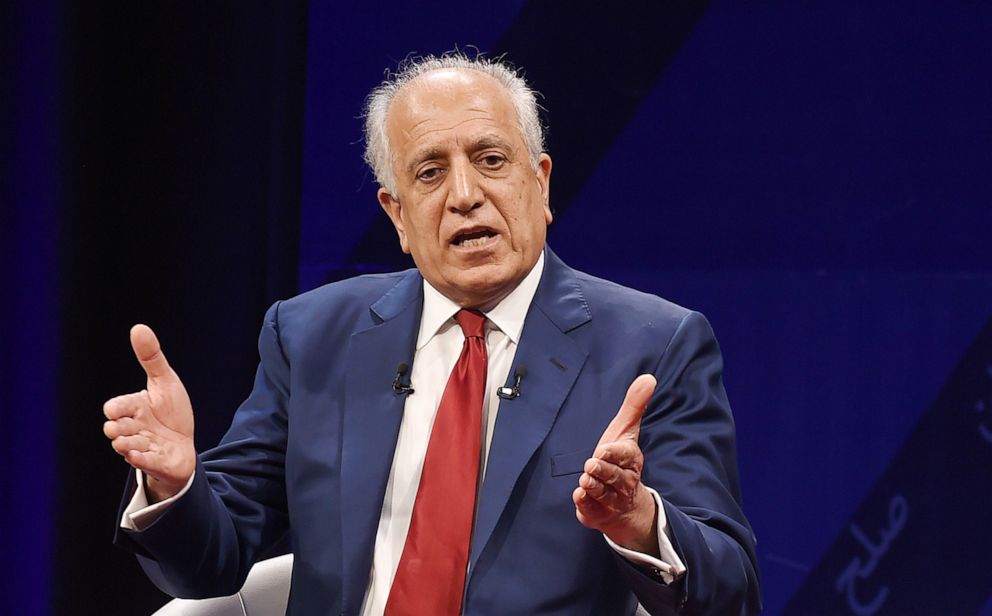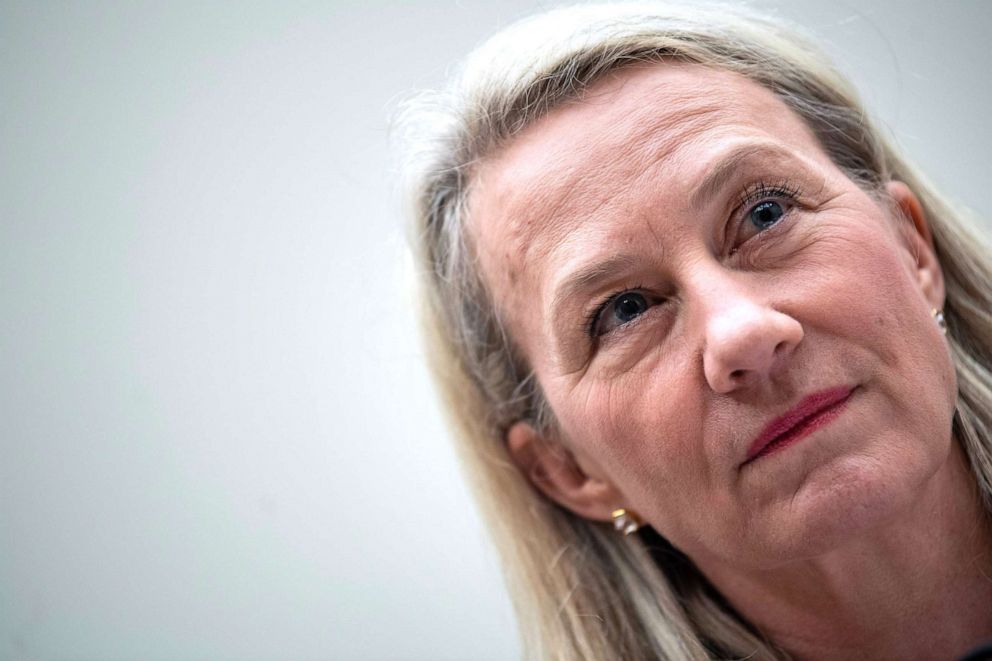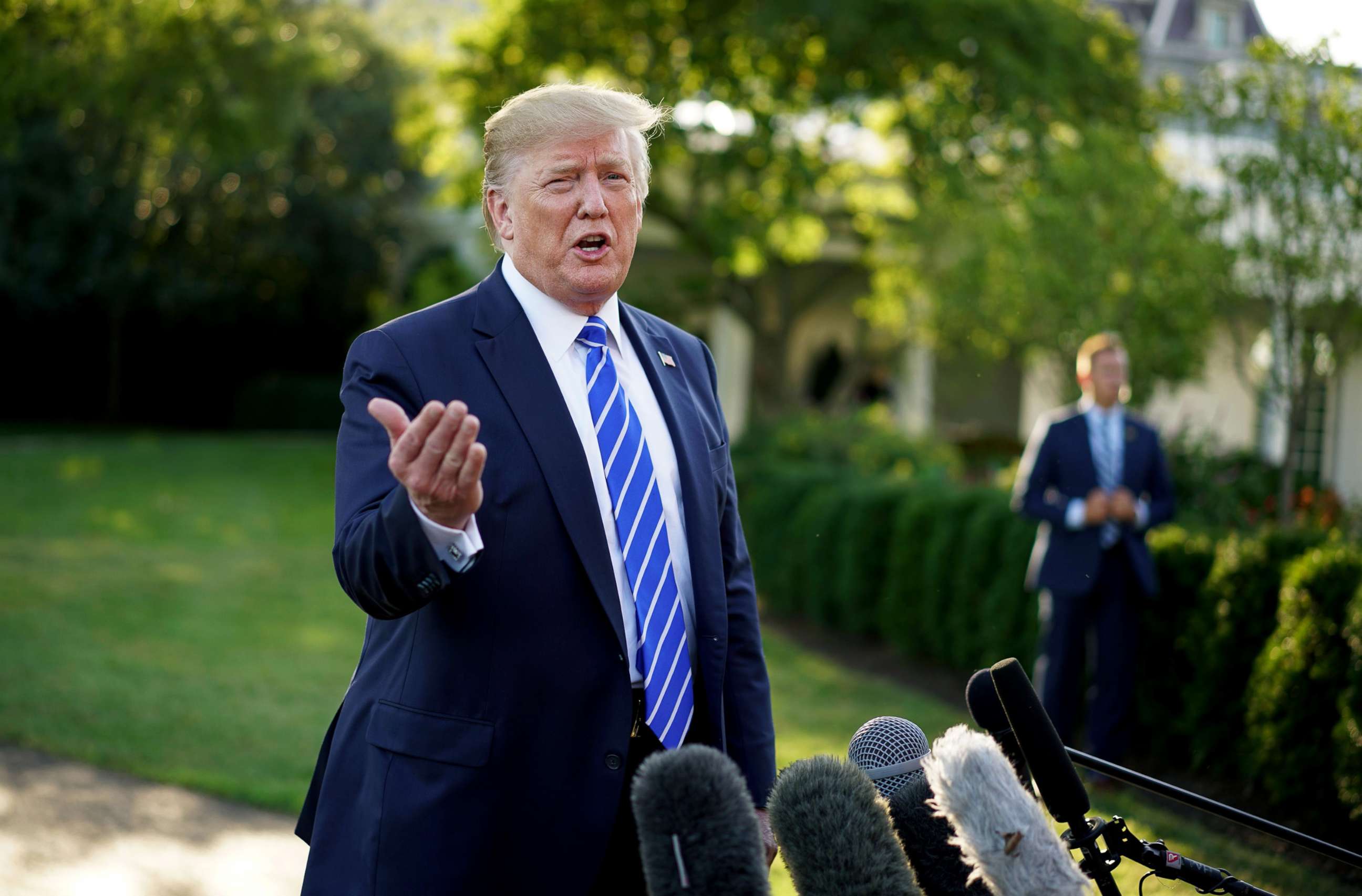Congress grills Trump admin over future of Taliban talks after US airstrike hits Afghan civilians
Trump abruptly called off talks after inviting the Taliban to Camp David.
The Trump administration is facing fresh bipartisan criticism for how it has handled its Afghan peace process after President Donald Trump announced that he had invited the Taliban to Camp David and then canceled the meeting.
Amid reports that a U.S. military strike killed at least 30 civilians Thursday -- and with no plans for the U.S. and the Taliban to meet again -- there are growing concerns about the administration's road ahead.
"In the last few weeks, we've seen the Afghan reconciliation process go off the rails in a spectacular fashion," Rep. Eliot Engel, D-N.Y., chair of the House Foreign Affairs Committee, said Thursday. "With the president declaring the deal 'dead,' it's not clear where we go from here."

An American team of negotiators led by special envoy Amb. Zalmay Khalilzad had held nine rounds of talks with the Taliban, the militant group that controlled Afghanistan and provided safe haven to al Qaeda when it plotted and executed the September 11th attacks. The two sides had reached an agreement "in principle" earlier this month, but were working out final details and awaiting final sign-off from both sides' leadership.
The agreement would have seen the U.S. withdraw 5,000 troops within 135 days and close five U.S. bases, with the eventual target of a complete withdrawal -- something the Taliban have long demanded. In exchange, the militant group reportedly agreed to cut ties to al Qaeda, not provide safe haven to terror groups, and sit down with the Afghan national government and other Afghan leaders for peace talks that could lead to a ceasefire and new government.
But that deal is in doubt now after Trump invited the Taliban and the Afghan government of President Ashraf Ghani to the august presidential retreat Camp David, only to cancel the meeting last-minute, citing the death of a U.S. service member by Taliban hands.
"The Camp David meeting was an utter disaster and never should've happened -- infuriated me, and I think even people that wanted to get out of Afghanistan, it ticked them off too," said Rep. Adam Kinzinger, R-Ill, "and I have no clue how that could've gone through any kind of filter not just of ideas, but how we actually got to where it was going to freaking happen. So I hope that never happens again."
Khalilzad himself had been subpoenaed to testify by Engel after he requested three times that the State Department send the chief negotiator to brief Congress on the talks -- something that had not happened since the U.S. first engaged the Taliban in summer 2018. Engel said Thursday that Secretary of State Mike Pompeo called him to offer a public briefing from a different official and have Khalilzad brief Engel and his Republican counterpart Rep. Michael McCaul of Texas. The showdown ended late Wednesday when the State Department agreed to let Khalilzad brief the whole committee and Engel agreed to withdraw his subpoena.

"After one year of talking to terrorists, he should be willing to talk to the United States Congress," said Rep. Tom Malinowski, D-N.J.
After Khalilzad briefed lawmakers behind closed doors, acting Assistant Secretary of State for South and Central Asian Affairs Alice Wells bore Congress's ire and faced questions. A career diplomat, she defended the administration's approach to talks, but repeatedly declined to answer questions by saying that she couldn't reveal details of the agreement or that she wasn't in the room for talks.
The talks with the Taliban have been suspended with no new meetings planned, Wells said, but the administration is actively reviewing "how we get back to a sustainable peace process." For the U.S., the key to that, Pompeo said Tuesday, is that the Taliban "begin to demonstrate a genuine commitment to peace rather than continue the violence and destruction."
The Taliban have engaged in violent attacks against Afghan security forces and civilians and American troops throughout the peace process. But in the lead-up to Afghanistan's national elections scheduled for September 28, the U.S. has accused the militant group of increasing attacks to "use violence as form of intimidation," as Wells said, which was "inconsistent with the nine rounds of negotiations."

Wells also defended Trump's Camp David invitation as evidence "this is an administration that is willing to take risks," before adding, "But I appreciate your concern" to one lawmaker.
But when pressed by Malinowski, who accused the administration of telling "bed-time stories" about Afghanistan, Wells shot back. "This is the only process that is producing the potential of direct conversations between the Taliban, Afghan government, and Afghan stakeholders."
While the Taliban would have agreed to meet the government and other leaders as part of the deal on September 23 in Oslo, Norway, critics say the administration's approach to date has empowered the Taliban by giving it legitimacy and equal standing with the government and undermined the government by leaving it out of the room and in separate meetings with U.S. officials.
Either way, that Afghan national peace process will not begin on Monday, and in the wake of the cancellation, violence has continued unabated.
A U.S. military strike reportedly killed at least 30 farm workers Thursday in eastern Nangarhar province, according to Reuters news agency. A spokesperson for U.S. Forces - Afghanistan confirmed there was a drone strike, but said it targeted ISIS forces in the region.
"We are aware of allegations of the death of non-combatants and are working with local officials to determine the facts," the spokesperson said.




